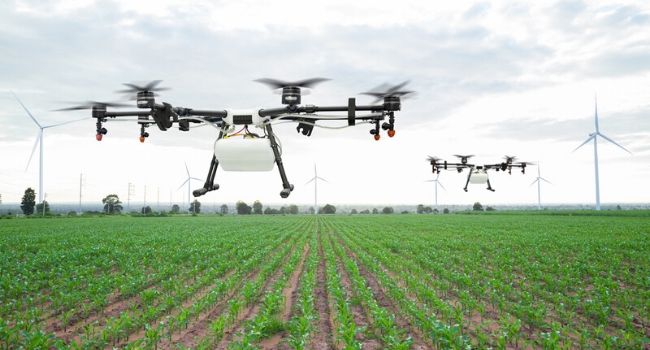
Trump Administration Preparing Executive Order to Ban Use of Foreign-Made Drones by Government Agencies
Chinese manufacturer DJI, which accounts for about 70 percent of the global drone market, stands to lose the most from a ban, which is based on national security concerns.
- By Haley Samsel
- Mar 13, 2020
An executive order is being prepared to ban federal agencies from buying or using foreign-made drones, building on previous moves by the Interior Department to ground its entire fleet of drones, all of which had parts manufactured in China.
The draft order, which was reported by TechCrunch, specifically cites national security threats posed by Chinese manufacturers as the reasoning behind the ban. The Trump administration fears that sensitive data collected by drones could be accessed by the Chinese companies, which are required to collaborate and share information with Chinese authorities if asked.
The order will “encourage” domestically built drones and that federal agencies would have one month to comply with the ban, according to TechCrunch. Military and intelligence agencies would be granted widespread exemptions under the terms of the draft order, TechCrunch reported.
China-based drone manufacturer would stand to lose the most from the ban. DJI accounts for 70 percent of the world drone market and formerly supplied many of the parts and drones for federal agencies. Michael Oldenburg, a DJI spokesperson, stated the company’s opposition to any proposed ban on foreign-made drones.
“While we haven’t seen the document, this proposal is another attack on drone technology based on its country of origin, which recent reporting has shown has been criticized within federal agencies including the U.S. Department of Agriculture, Department of the Interior, Fish and Wildlife Service and even the White House Office of Management and Budget,” Oldenburg told TechCrunch.
He added: “When communicating among themselves, these agencies’ officials have explained how such an approach damages American interests and does not solve any cybersecurity issues, and have acknowledged that DJI’s products have been validated as secure for use in government operations.”
Oldenburg was referencing reporting from The New York Times and others showing that top officials in the Department of Agriculture, among other departments, were very concerned about how the law would “severely impact the establishment, development and implementation” of their drone program.
Stephen L. Censky, the deputy secretary for the agriculture department, told the Times in February that he was concerned that “none of our previous comments were considered or integrated” into the revised version of the ban, which they saw in December.
Interior Department officials also previously stated that they were working with DJI to test software to keep sensitive data secure until the grounding in late October.
About the Author
Haley Samsel is an Associate Content Editor for the Infrastructure Solutions Group at 1105 Media.